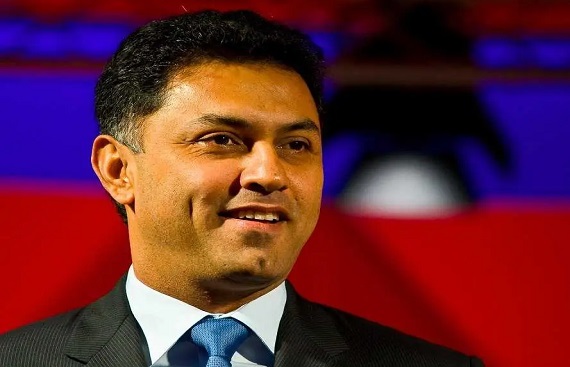Nikesh Arora's Quest for Organizational Finesse

Once a person holds a higher position, then it’s rare that they step down from the position and not choose to compete. Nikesh Arora is a legendary figure who stepped down twice from an honorable position. From being a former senior executive at Google to the Chairman and CEO of Palo Alto Networks, his remarkable story has piqued people’s curiosity to know how, why, and what makes him challenge himself repeatedly. Today we talk about the incomparable journey of Nikesh Arora, an Indian-American business executive who chose to leave Google and join SoftBank. He resigned from SoftBank as well, and, at present, Arora is the Chairman and CEO of Palo Alto Networks.
Onset of accomplishment: An academic prodigy
A man of culture, hard work, and adherence can aim to achieve anything. Nikesh Arora has begun his journey as an academic prodigy. Belonging to an Air force family and studying at the Air force school made him accept that discipline and diligence are the roots of any successful story.
Nikesh’s academic venture began with the standard choice of all the Indian youngsters pursuing engineering. Though, it worked out uniquely for him. He went to IIT Varanasi (IIT BHU), one of the best Indian institutes for engineering. He graduated with a degree in Electrical and Electronics Engineering in 1989. The IITian tag is good enough to make someone formidable in the Indian corporate world. But the fact that amplifies his academic grandiosity is that he also holds a degree from Boston College and an MBA from Northeastern University, including the designation of CFA.
With such a rich academic background and a penchant for technology, finance, and marketing, the versatility of his knowledge and skills set him unmatched.
Competence of an engineer “can do anything”
After graduating from IIT BHU, Nikesh Arora joined Wipro and worked there only for a short period. Following the successful completion of his master’s degree in Marketing, he joined Fidelity investments as an analyst in 1992. He was in charge of the finance and technology portfolios and did such a fantastic job that he got promoted to the position of vice president of the company within a few years. It is hard to believe that in the present world, with a recession looming over the corner. Even excellent guys are getting just 5% appraisal in many of the companies as of now. Along with this job, he also applied for another master’s degree in Finance and juggled his job with his college studies.
After the degree, he left Fidelity investment and went on to work with similar companies such as Putnam Investments, Deutsche Telekom, etc. In 2000, Arora founded a company, T-Motion PLC. He built the company mainly to provide services to the newly launched 3G products of Deutsche Telecom. After two years, these two companies merged. Arora stayed as a Board Member.
The Big Decisions
In 2004, Google went public, and it was hiring for its European office. Nikesh joined Google, and it was a relatively young company. He played a significant role in expanding the company in the European and middle-eastern countries. His splendid work was soon rewarded, and he held multiple senior leadership roles at Google. In 2014, he finally resigned from the company from the positions of Senior Vice President and Chief Business Officer as the highest-paid officer in the company.
The resignation from Google was followed by incorporation into SoftBank, a Japanese Multinational company (MNC). He soon held command as the firm's President and Chief Operating Officer and initiated some major investment decisions that brought back heavy returns. He received an incredibly handsome compensation for his contributions, which made him the world’s highest-paid executive of that time.
CFA Nikesh Arora relinquished from SoftBank after reaching the precipice of professional insight there, and so he chose to join Palo Alto Networks, a US-based security firm, in June 2018. Currently, he serves as the CEO and chairman of the company.
Under his command, Palo Alto made some significant acquisitions in its history. In 2018, Palo Alto was even featured in the Forbes digital 100 as the 8th most powerful digital company globally.
And he has never looked back since! Once in an interview, he mentioned three main factors for his success – hard work, fate, and adaptability to situations.
